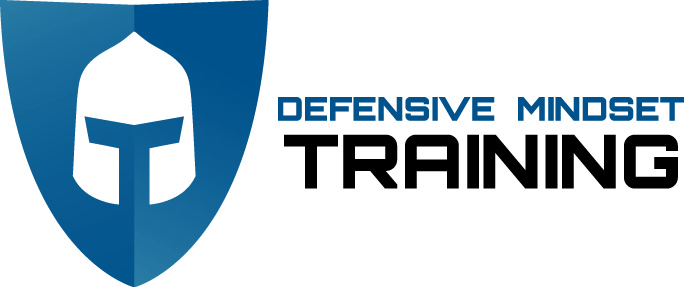Bad Training Session
Beau Doboszenski, Owner/Lead Instructor
Originally published November 30th, 2017
It happens to all shooters: for no apparent reason, you have an awful range session.
A few weeks ago I was on the range in my normal training mode, working on a very simple skill: Concealed Draws to Center of Face (CoF). No immediate actions. No worrying about cover/concealment. No decision making required. Just clear my firearm, draw, aim, and shoot.
After my first draw I knew that something wasn't right. My first shot on target was 2.3 seconds, more than a second SLOWER than my average first shot on target.
A little weirded out, I reholstered and tried again. Same result and worse still, I crushed the shot, missing CoF. Reholster, try again. Same result: slow first shot, crushed to the left. Now I was getting annoyed.
I went back to foundational shooting skills, reminding myself of the Shooting Fundamentals Checklist and doing single shots, nice and slow. That went as expected with all 10 shots going into a quarter-sized spread at 20 feet. So I went back to my draw.
First shot: 2.5 seconds and a crush. Now, I was ready to break my holster or my handgun, or murder the target. I moved on to shooting triplets. At my best I was getting 8" groups at 18 feet with .4's for splits. Arrgh! What a disaster.
Rather than waste another round, I packed up the live handgun, did some dry fire with my SIRT, and called it a day, feeling awful about my performance.
As I’ve mentioned, Defensive Mindset Training isn't my only business. I am also the co-owner of a gym in Hopkins called Life Strength Fitness. My partner there is Andrew Heaton, a professional fitness trainer with a Master's Degree in Kinesiology and Human Performance from the U of M, plus half a dozen certifications. His programs emphasize progressive training over time, with a changing focus over time – strength, power, endurance, etc.
After my disaster at the range, I decided to head to LSF to get in a workout. Andrew could tell by my mood that something was wrong. I explained the range session and he immediately asked: "Did you do a big power workout yesterday?"
Power workouts are about improving your ability to move as much weight as possible, as fast as possible, getting your tissues to engage and disengage as quickly as you can. By developing power you can hit harder, run faster, and deploy your defensive tools with increased speed – all very beneficial for Citizen Defenders.
Of course, as Andrew suspected, I'd done almost two hours of power work the day before with heavy squats, deadlifts, and even tire drag sprints. Shaking his head, Andrew informed me: "Yeah, of course your range session was awful, your nervous system is shot and it needs a break." So it wasn’t a problem with my technique – it was a problem with my physiology.
Neurologically, our brains are constantly interacting with our world, processing information to enable us to move through and engage with our environment. We can put stress on these neural pathways in lots of ways: by studying intensely, working a very stressful job, recovering from a night of drinking, or working out really hard.
The result is that just like a sore muscle, the nervous system can't respond to your demands like it would when it is fresh and ready to go.
So what to do?
Be aware of your workouts and have a goal with them. Just pounding on your body without a goal will get you nowhere, and will impede you from making any specific adaptations that are useful for your defense. By knowing your goal, you can schedule your workouts to coincide with your firearms training, making sure you are getting results in BOTH areas, and you won’t make the mistake I did and do too many training sessions back-to-back.
Try to avoid alcohol 24 to 48 hours before going to the range.
It might sound cliché, but find ways to de-stress like taking a walk, listening to comforting music, taking time to sit and declutter your mind (maybe through breathing, meditation, or prayer), getting enough sleep, and drinking enough water.
Get enough Magnesium in your diet or through supplementation. Your brain uses Magnesium to aid in myelination and neural pathway repair.
When a range session goes bad – and believe me, one day it will – try to look for extenuating circumstances that might be contributing to the poor session. I've had range sessions where my handgun was so dirty that it impacted the performance, and another session ruined by a worn out recoil spring. One time I switched ammo, and the powder/pressure difference was such that I didn't perform as well as I wanted. A diabetic student of mine even noticed a difference in performance based on his blood sugar levels. There are so many reasons that a range session might go poorly, even when you know you’re doing everything right.
Of course, if ALL your range sessions go poorly, it’s time to get back to Shooting Fundamentals and clean up your technique. Don’t blame extenuating circumstances when what you really need is proper, steady, ongoing training.
Most importantly, when a range session starts going really bad, do yourself a favor: stop. Pick up your SIRT and dry fire to get in some reps. Then go do something you enjoy – take your pent-up energy and hit the gym like I did, or do something that relaxes you. It might sound silly, but positive reinforcement following a negative training experience is very useful in helping you to recover and be ready to get back to the range another time.
